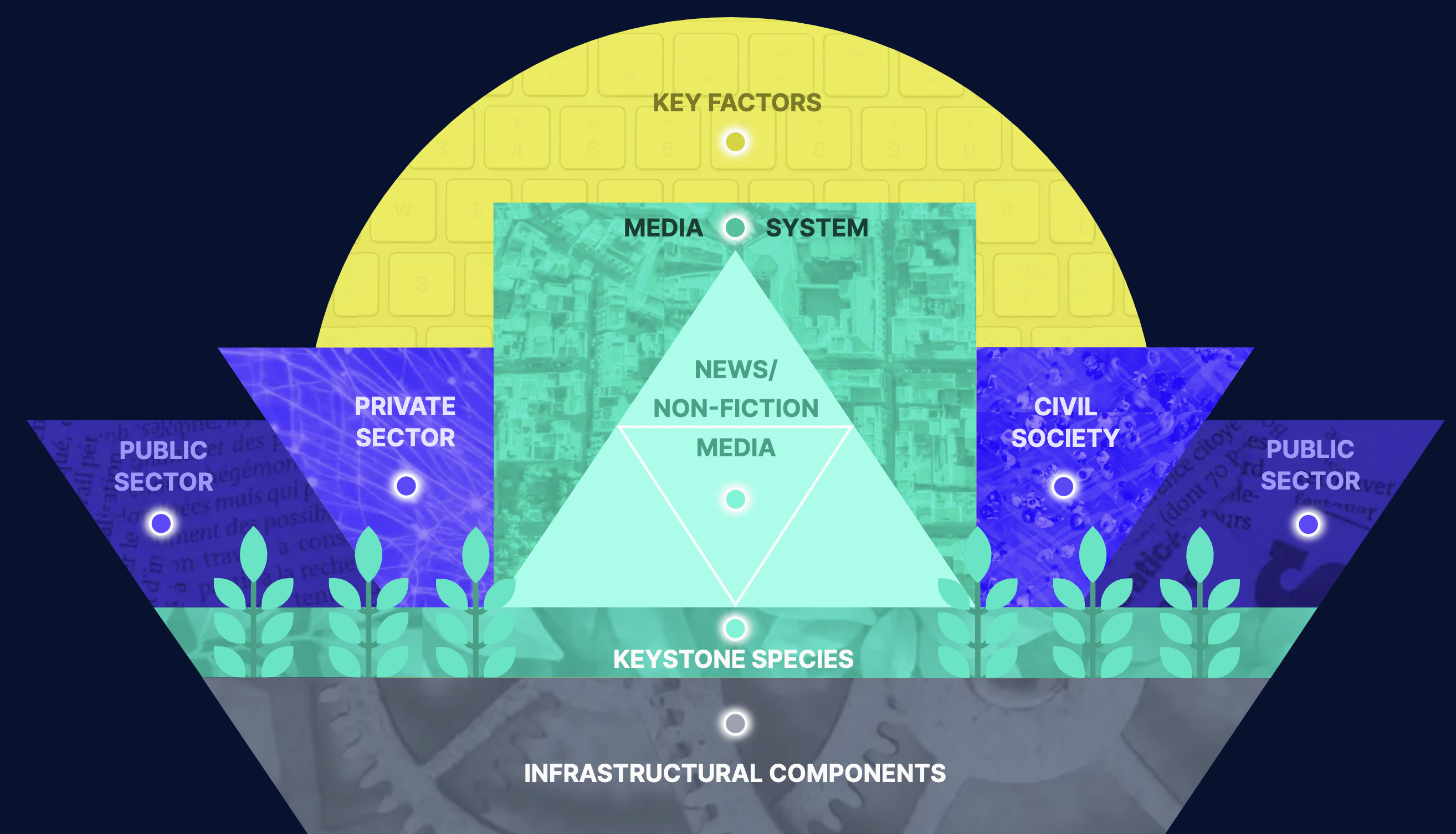Emphasizing the importance of striving for robust, ethical, and adaptable information environments is a key focus for TAI members. In pursuit of this goal, we have recently introduced an information ecosystem map in collaboration with Dr. Courtney Radsch. Our visual representation comprehensively encompasses various stakeholders, including media entities, technology platforms, governmental bodies, civil society, and individuals, acknowledging their interconnectedness and the roles they play in molding the ecosystem.
Last September 20, TAI Executive Director Michael Jarvis and Dr. Courtney Radsch also shared their insights in this article for The Chronicle of Philanthropy. Here are several core concepts highlighted by both experts:
In the relentless battle against the surge of online deception and lies, a significant shift is emerging, one that emphasizes the vital role of large-scale philanthropy. With misinformation plaguing political landscapes, the 2024 election arena, and even climate action efforts, technology, particularly social media, has amplified these global trends, leading to real-world consequences. Although platforms like Facebook have played a role in spreading disinformation, many have reduced their efforts to combat it.
The challenges extend further with the advent of Artificial Intelligence, which can fabricate research affecting healthcare decisions, manipulate deep fake videos, and create convincing fake news stories. The recent AI-generated fake photo of a plane crash near the Pentagon is just a glimpse of the sophisticated tactics to come.
Thankfully, philanthropy is waking up to these threats, as grant makers recognize how misinformation and disinformation undermine the nonprofits they support, from fueling vaccine hesitancy to eroding faith in democracy and disproportionately harming marginalized communities. Global leaders share these concerns:
Disinformation “poses an existential risk to humanity and further endangers democratic institutions and fundamental human rights.”
UN Secretary-General.
To combat this crisis, philanthropy is evolving beyond merely reacting to misinformation. It's shifting towards creating a healthy information ecosystem that curtails the spread of falsehoods, supports quality information, and ensures diverse sources thrive. This holistic approach encourages donors to coordinate their efforts, advocate for policy change, and invest in research.
Coordination across fields is crucial, bridging traditional areas like media literacy with newer concerns such as social media accountability and AI governance. Advocacy for policy change, like tech platform regulation, transparency, and online safety, is essential to address the US's lag in this regard. Philanthropy can also support efforts to break up monopolistic practices and protect data and information systems as public goods.
Furthermore, increased support for better research is vital, especially in underrepresented regions, as most studies are skewed towards Global North countries. This research can help refine strategies and recognize the evolving nature of the problem, such as the need for technical standards to validate online content authenticity.
Ultimately, collaboration is key. Individual funders can address symptoms, but a shared framework and coordinated approach are necessary to align strategies, identify funding gaps, and bolster the overall health of our information environment. The goal is to create conditions where accurate and diverse information empowers individuals to make informed decisions for the benefit of society.
While preventing all mis- and disinformation is a daunting task, a comprehensive effort can significantly minimize harm. It's time for philanthropy to confront this crisis with the seriousness it deserves and work together to build a healthier information ecosystem.
